Update (June 25, 2014): Navigating the digital landscape as a book reviewer often involves weathering storms, and recently, that storm has taken the form of cyberbullying. Before diving into my critique of The Fault in Our Stars, I want to address a few points to ensure clarity and foster respectful discussion.
Firstly, this review is unequivocally negative. It’s crafted for readers seeking a dissenting opinion, particularly those who might question the near-universal acclaim of this novel. If you believe that literary taste is monolithic, and that disagreement equates to disrespect, this review might not align with your perspective.
Harassment is unacceptable. It’s crucial to understand that diverse opinions are the lifeblood of intellectual discourse. Not every book resonates with every reader, and that’s perfectly valid. To assume that universal adoration is mandatory is both selfish and unrealistic. The world thrives on a spectrum of viewpoints, and respecting these differences, even when they challenge our own preferences, is fundamental. Liking or disliking a book doesn’t define a person’s character; it simply reflects individual taste.
Every reader possesses the right to analyze and critique any literary work, and to articulate their thoughts freely without fear of intimidation. Critical analysis is essential for active reading, preventing us from becoming passive recipients of narratives. Literary giants like Shakespeare and J.K. Rowling have faced their share of critical scrutiny. Why should John Green’s work be considered exempt?
Cyberbullying and online harassment are not valid forms of literary debate. Hate messages and threats reflect poorly on the sender, and ironically, amplify the visibility of the very reviews they seek to suppress. Such tactics are ineffective and reveal immaturity and cowardice. I stand firm in my opinions and will not be swayed by bullying, regardless of its source.
Finally, let me be clear: disliking a book is not an attack on those who love it. My critique targets the text itself, not the readers who find value in it. My issue lies with those who believe negative reviews are illegitimate, who condone cyberbullying against reviewers, and who are unwilling to consider that even beloved books can have flaws. Have you ever encountered someone who disliked The Fault in Our Stars attempting to force their opinion onto fans in positive review sections? Then why is the reverse considered acceptable?
With that established, let’s delve into the review.
WARNING: MAJOR SPOILERS AHEAD
Expectation vs. Reality: The Hype Train and the Crash Landing
The anticipation surrounding The Fault in Our Stars was immense. Glowing reviews and fervent fan recommendations painted a picture of a profoundly moving, life-altering narrative. Social media was awash with emotional reactions, promising a literary experience unlike any other.
 expectation vs reality
expectation vs reality
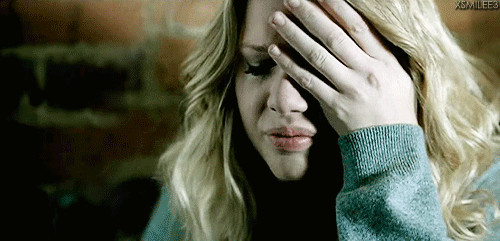 expectation vs reality
expectation vs reality
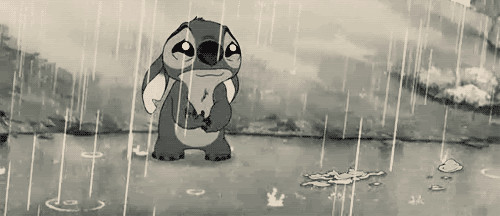 expectation vs reality
expectation vs reality
Driven by this wave of enthusiasm, I purchased a hardcover copy, eager to experience this acclaimed masterpiece. However, the reality of reading The Fault in Our Stars was jarringly different from the promised emotional journey. Instead of being moved, I found myself increasingly frustrated, ultimately resorting to physically slamming the book in exasperation. This wasn’t the thought-provoking, beautiful story I had been led to expect. Instead, it felt like wading through a swamp of clichés and pretentiousness.
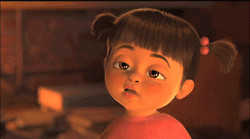 reality disappointment
reality disappointment
 reality frustration
reality frustration
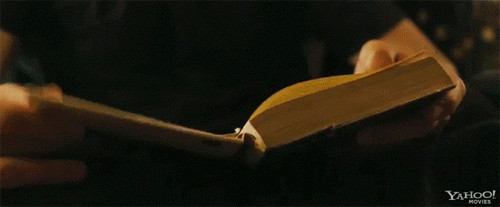 reality anger
reality anger
To articulate my profound disappointment, I’ve compiled a list of the elements that propelled The Fault in Our Stars to the top of my “worst books ever” list.
Character Catastrophe: Cardboard Cutouts in Teenager Bodies
Hazel Grace Lancaster and Augustus Waters are consistently lauded as complex and relatable characters. However, I found them to be remarkably flat and underdeveloped. They felt less like teenagers grappling with serious illness and more like caricatures – 60-year-olds inhabiting the bodies of adolescents. This resulted in characters who were not only boring but actively unlikeable.
Hazel, in particular, struck me as an irritatingly pretentious Mary Sue. Her attempts at profound introspection often came across as shallow and contrived. Consider her musings: “Why are breakfast foods breakfast foods…Like, why don’t we have curry for breakfast?” This isn’t insightful; it’s simply trying too hard to be quirky. Similarly, her observation on attraction, “A nonhot boy stares at you relentlessly and it is, at best, awkward and, at worst, a form of assault. But a hot boy . . . well,” is not clever, but rather, unsettlingly superficial.
Augustus mirrors Hazel in this forced profundity, creating a monotonous echo chamber of pseudo-intellectualism. Their personalities are virtually indistinguishable, lacking any real depth or nuance. I felt no connection to them, no empathy for their struggles, only a growing irritation with their constant pronouncements.
Romance? More Like Insta-Love and Inappropriate Locations
The central romance between Hazel and Augustus is often described as heart-wrenching and beautiful. In my view, it was neither. Their connection felt instantaneous and unearned, a classic case of “love at first sight” devoid of any believable development. Hazel’s immediate willingness to visit Augustus’s house after a fleeting initial meeting is not romantic; it’s frankly unbelievable and bordering on reckless. Where is the sense of caution, the gradual build-up of trust?
The infamous kissing scene in Anne Frank’s House was particularly egregious. This location, a poignant symbol of remembrance and tragedy, was transformed into a backdrop for a teenage make-out session. To treat such a site with such casual irreverence is not only distasteful but deeply disrespectful. In reality, such behavior would likely be met with disgust and swift expulsion, not applause.
Writing Woes: Cheesy Quotes and Emotionless Prose
The writing style in The Fault in Our Stars is frequently praised for its emotional depth and poignant observations. I experienced it as cheesy, emotionless, and frankly, terrible. The book is littered with supposedly profound quotes that, upon closer inspection, crumble into meaningless platitudes.
“My thoughts are stars I cannot fathom into constellations.” Why stars? Why constellations? This metaphor, like many others, feels forced and empty.
“Some infinities are bigger than other infinities.” This statement, while mathematically true, adds nothing of substance to the narrative and reads like an attempt at faux-philosophical profundity.
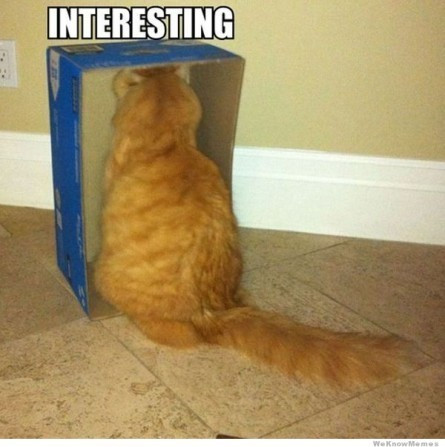 Infinity quote
Infinity quote
“That’s the thing about pain. It demands to be felt.” This is not a profound insight; it’s a banal observation dressed up as wisdom. It’s akin to saying, “That’s the thing about hunger. It demands to be fed.”
Augustus’s grand declaration of love is another example of this overwrought prose: “I’m in love with you, and I’m not in the business of denying myself the simple pleasure of saying true things. I’m in love with you, and I know that love is just a shout into the void, and that oblivion is inevitable, and that we’re all doomed and that there will come a day when all our labor has been returned to dust, and I know the sun will swallow the only earth we’ll ever have, and I am in love with you.” This monologue, and others like it, are less romantic pronouncements and more melodramatic ramblings.
“There will come a time when all of us are dead. All of us. There will come a time when there are no human beings remaining to remember that anyone ever existed or that our species ever did anything. There will be no one left to remember Aristotle or Cleopatra, let alone you. Everything that we did and built and wrote and thought and discovered will be forgotten and all of this will have been for naught. Maybe that time is coming soon and maybe it is millions of years away, but even if we survive the collapse of our sun, we will not survive forever.” These extended, existential monologues are not only unrealistic for teenage dialogue but also detract from the emotional core of the story.
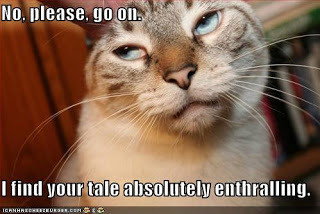 Exasperated reaction
Exasperated reaction
The dialogues are riddled with senseless exchanges, overwrought metaphors, and vocabulary that feels artificially inflated. Teenagers, especially those facing serious illness, simply do not speak in such consistently stylized and verbose monologues. The notion that cancer magically bestows profound wisdom is a harmful and unrealistic trope. More often, teenagers facing such challenges experience fear, confusion, depression, and anger – not sudden enlightenment and eloquent pronouncements on the meaning of life.
Plot Predicaments: Predictable, Boring, and Uninspiring
The plot of The Fault in Our Stars is often lauded for its emotional impact and poignant exploration of life and death. I found it predictable, boring, and utterly uninspiring. Reading it felt like a chore, a slog through a narrative landscape devoid of genuine emotional resonance. Despite the heavy subject matter of cancer, I felt no sense of Hazel and Augustus’s genuine struggle, no connection to their pain. Beneath the veneer of philosophical musings, The Fault in Our Stars is, at its core, a clichéd and shallow romance novel masquerading as something deeper.
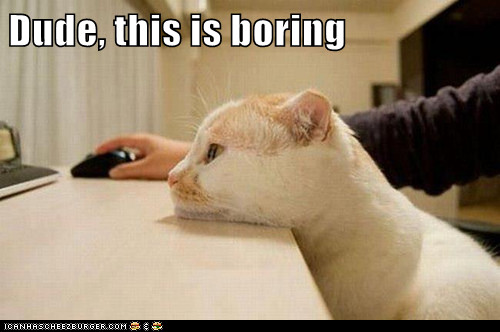 Boredom reaction
Boredom reaction
The attempt to inject emotional weight through plot points often felt forced and manipulative. Augustus’s death, described as occurring “eight days after his prefuneral,” is presented in a way that trivializes the gravity of the situation. It’s framed with a flippancy that undermines any potential emotional impact.
The fact that a book makes readers cry is often cited as a measure of its quality. However, emotional manipulation is not synonymous with masterful storytelling. While The Fault in Our Stars may evoke tears, this emotional response does not automatically elevate it to the status of a profound or life-changing work. Sadness alone does not equate to literary merit.
Before accusations of heartlessness are leveled, it’s important to reiterate that criticism of a book is not an attack on its readers. Just as fans have the right to express their adoration, critics have the right to articulate their dissenting opinions, regardless of popular sentiment.
Addressing the “Teenage Dialogue” Debate
A recurring point of contention in discussions surrounding my critique centers on the realism of the teenage dialogue in The Fault in Our Stars. To clarify, my criticism is not rooted in the assumption that teenagers are incapable of articulate or complex thought.
I take issue with the consistent and pervasive use of overly stylized, pretentious language in everyday conversations. Examples like “I’m awash in the metaphorical resonance of the empty playground in the hospital courtyard” and “That kid never took a piss without pondering the abundant metaphysical resonances of human waste production” are not representative of authentic teenage speech.
It’s not about vocabulary size; it’s about the unnatural and constant deployment of such language in casual interactions. While some teenagers possess extensive vocabularies and sophisticated writing skills, these abilities are typically honed through dedicated study and reflection, not spontaneous outbursts in everyday conversation. The characters in The Fault in Our Stars, however, exhibit this heightened, almost performative language consistently, without any clear in-narrative justification. There’s no indication that Hazel or Augustus are particularly engaged with high literature, philosophy, or oratory that would explain their consistently elevated diction. Their pronouncements feel less like genuine expressions and more like authorial contrivances.
The infamous cigarette metaphor – “It’s a metaphor. You keep the killing thing between your teeth but don’t give it the power to kill you” – exemplifies this forced pretentiousness. Augustus’s act of purchasing cigarettes only to ostentatiously not light them is not a profound statement; it’s a shallow gesture that ironically supports the very industry responsible for causing cancer. Hazel’s impressed acceptance of this metaphor further underscores the characters’ shared penchant for superficial profundity.
The issue isn’t intelligence; it’s plausibility and authenticity. The dialogues in The Fault in Our Stars often prioritize cleverness over realism, resulting in characters who feel more like mouthpieces for the author’s ideas than genuine individuals.
Ultimately, my inability to connect with the characters and their experiences is not a personal failing but a reflection of what I perceive as flaws in the author’s character development and writing style. The characters felt shallow, judgmental, and at times, disrespectful. The narrative, in my view, romanticizes cancer and utilizes it as a manipulative plot device. My critique is directed at the book itself, not at individuals affected by cancer or those who find value in the story. Every reader is entitled to their own interpretation and opinion, and critical analysis is a vital part of engaging with literature.
